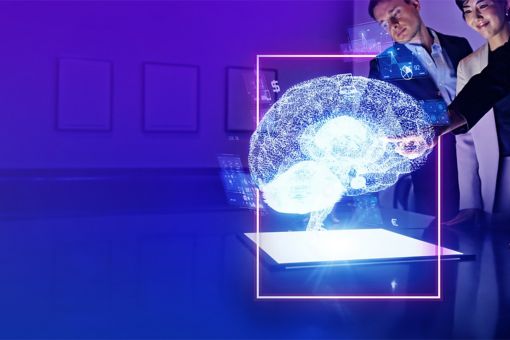KPMG is revolutionizing workforce optimization with its skills-based talent strategies, offering businesses a pathway to thrive in today's dynamic landscape. By focusing on essential skills rather than traditional roles, KPMG helps companies navigate rapid technological advances and evolving business needs while addressing critical skills gaps. This modern approach empowers organizations to create agile, high-performing teams that drive innovation and adaptability.
A skills-first strategy not only enhances workplace diversity by valuing diverse backgrounds but also positions companies to attract and retain top talent with opportunities for continual growth and development. Leveraging generative AI (GenAI) within this framework further augments employee skills, enabling more efficient task completion and expanding skill portfolios across the organization.
KPMG's approach ensures companies are better prepared for market changes by fostering cross-functional collaboration and improving workforce flexibility. This leads to increased project efficiency and cost savings by optimizing talent allocation and reducing dependency on costly external hires.
The journey towards a skills-based organization promises enhanced employee experiences, strategic workforce planning, and sustained competitiveness. With KPMG’s expert guidance, businesses can successfully transform their talent strategies, future-proofing their workforce and unlocking new avenues for growth in an ever-changing business environment. Embrace the future with KPMG’s skills-first talent strategy.
Here are three key factors for developing and sustaining effective upskilling, reskilling, and career mobility with AI:
Essential #1: Keep humans at the center.
AI innovations are advancing rapidly, creating a need for agile and responsive learning models. Even for technology experts, it can be challenging to keep up. Now put yourself in the shoes of non-technical workers who may already feel overburdened with meeting current day-to-day demands. Learning and development need to move at the pace of innovation—while still preserving human-centricity.
Keep these principles in mind when designing AI-centric learning and upskilling programs:
- Make it personal. Tailor learning paths to individual strengths, limitations, interests, and career goals rather than offering one-size-fits-all programs. Give individuals choice and control over what, how, and when they learn. And make sure upskilling opportunities are available to all employees no matter their role, work location, or background.
- Make it safe. Your talent needs to feel emotionally and psychologically safe as they navigate AI and its implications. Create a supportive environment where they feel comfortable experimenting, taking risks, making mistakes, and asking questions.
- Make it daily. In the face of rapid change and innovation, learning and development needs to be baked into daily routines, whether in the form of AI agents who provide information at the point of need or human managers who offer ongoing guidance, mentorship, and coaching.
Fortunately, AI technology is ideally suited to enhancing—rather than replacing—the human connections that fuel engagement and creativity in your workforce. Prioritizing human-centric initiatives empowers your talent with the knowledge, mindset, skills, and experiences they need to thrive in evolving workforce models.
Essential #2: Be intentional about technology.
Traditionally, the learning management system has been the core of most learning and development programs. Yet legacy technology stacks may not fully support the shift to a skills-based talent strategy. Organizations may need to identify and invest in technology tools that help deconstruct roles into skills, so human resources leaders can begin to identify and bridge skill gaps across the organization.
Equally important is the ability to forecast skills the organization will need in the future, as such insights are crucial in shaping upskilling efforts. Consider emerging skills—and prioritize them for upskilling to ensure your workforce is capable of meeting future challenges.
Utilize technology for skills-based learning in the following ways:
- Evaluate current tools: Assess if your existing learning management systems support a skills-based approach.
- Trusted AI Enabled Solutions: Implement AI-driven platforms that offer real-time insights and predictive analytics to forecast future skill needs.
- Integrate smoothly: Ensure new technologies integrate with existing systems to provide a cohesive learning experience.
Essential #3: Embrace continuous learning at the speed of light.
Traditional, one-off training modules must give way to a new operating model that fosters continuous and adaptive learning. The future of learning lies in integrating education into the flow of work—enabling employees to access training and information as they need it. For many organizations, this will involve migration from traditional learning experiences to AI-driven learning experiences that are on-demand and personalized.
Components of continuous learning should include:
- On-demand training: AI-powered systems can provide employees with the precise training they need when they need it.
- Adaptive learning paths: Personalized learning journeys adapt to individual progress and evolving skill requirements.
- Feedback loops: Continuous feedback mechanisms ensure learning is relevant and effective.
Turn AI upskilling into a strategic advantage
Investing in AI-powered and AI-focused learning and development can unleash entirely new pathways for growth and development, giving your organization a significant edge in the battle for talent. By leveraging external data to understand broader industry trends affecting talent availability, tenure, and demand for critical skills, companies can ensure they are equipped with the right mix of human and digital talent. This approach leads to more accurate forecasting and strategic decision-making, allowing organizations to thrive in a rapidly changing environment.
Our approach for AI-driven workforce optimization
As organizations navigate the complexities of AI integration, KPMG offers human-centered solutions that address workforce challenges and help futureproof operations. We help ensure your learning and development programs are aligned with your overall business strategy and technological maturity.
Our capabilities include:
- Skill-Gap Analysis: Utilizing proprietary AI tools, organizations can analyze and identify skill gaps as they arise.
- Trusted AI-Enabled Learning Systems: By implementing advanced AI-powered training platforms, learning experiences are personalized and provide real-time feedback.
- Tailored Upskilling Programs: Customized upskilling and reskilling programs designed to organizations’ unique needs and goals.
- AI Value Realization: Targeted strategies to help manage change effectively, so organizations can foster a culture that embraces AI and continuous learning and upskilling.

The rise of skills-based talent strategies
How they are revolutionizing workforce optimization
Download English PDF (952 KB) ⤓
Download Vietnamese PDF (1 MB) ⤓




